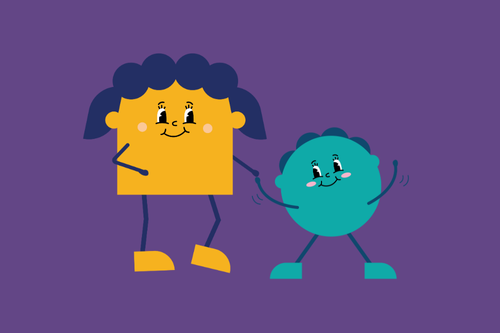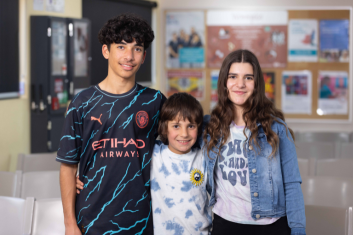Safety information for children

We’re Here for You: Healthcare Rights Every Young Person Should Know


Keeping you safe
At IPC Health, your safety, happiness, and voice matter most. We want every child, young person, and family member to feel secure and respected when you visit us.
This page explains how we make sure you're safe and supported.
Everyone at IPC Health, including our staff and visitors, should treat each other with kindness and respect. You have rights when you use our services, and we promise to always respect them.
We promise to:
- Treat you kindly and with respect
- Give you the best care we can
- Respect your culture, religion, and beliefs
- Help you understand what’s happening
- Let you help make decisions about your care
- Keep your information private
- Ask before sharing your information
- Let you say no to treatment or services
- Let you bring someone with you if you want
- Help you find someone to speak up for you (an advocate)
- Listen to your feedback
We'd like you to:
- Be on time for your appointments so we can help you as best we can.
- Let us know early if you can’t come to your appointment.
- Be kind and respectful to everyone you meet while using our services.
- Ask questions if you’re unsure about something, especially if we need your okay for a treatment.
- Try your best to follow the advice your health worker gives you.
- Tell us important things about your health so we can take good care of you.
- Help us keep our buildings clean and safe for everyone.
- Respect other people’s privacy and space.
- Let us know if your address, phone number, or other details change.
- Take care of any equipment or items we lend you for your treatment.
We promise to keep your personal information private and safe. It’s protected by law, and we keep it secure.
Only staff directly helping you can see your health information. We only share your information if you say its ok, or if the law requires it (like if someone is in danger).
You can ask to see your health information and have it corrected if anything is wrong.
Sometimes it’s hard to speak up or know what to say when something’s wrong or you need help. That’s when an advocate can step in — they’re like a helper who listens to you, makes sure adults understand what you need, and helps you get the right support. If you don’t have someone like that, we can help you find one who will stand by your side and help you have a voice.
We want to hear what you think! Your ideas help us make things better for everyone.
- You choose: We'll explain your health and treatment options, and you get to say "yes" or "no" to treatment.
- Tell us what you think: You can talk to staff, fill out this form , or email us at ipchealth@ipchealth.com.au
- Support: You can bring a trusted adult (parent, friend, advocate) to support you
- Australia Charter of Healthcare Rights
The Charter describes the rights that consumers, or someone they care for, can expect when receiving health care.
These rights apply to all people in all places where health care is provided in Australia.
Australian Charter of Healthcare Rights
Information about the Australian Charter of Healthcare Rights including languages other than English
If you suspect that a child, or any person, is being abused or may be in immediate danger, you should call ‘000’ immediately and report the matter to Victoria Police. Where you are concerned a child or young person is in need of protection, you can report to Child Protection at https://services.dhhs.vic.gov.au/reporting-child-abuse .
Report inappropriate behaviour or abuse Reporting child abuse - DFFH Services
Other resources
Kids Helpline
Phone: 1800 55 1800
Website: kidshelpline.com.au
eHeadspace
Phone: 1800 650 890
Website: headspace.org.au/eheadspace/
Commission for Children and Young People
The Commission for Children and Young People is a group that helps make sure kids and teens in Victoria are safe, treated fairly, and listened to. They check how schools, care places, and other services treat young people, and they speak up when things need to change.
CCYP | Recognising, respecting and defending the rights of children and young people
translated CCYP | Translated resources about the Child Safe Standards
Child Protection at https://services.dhhs.vic.gov.au/reporting-child-abuse .
Report inappropriate behaviour or abuse Reporting child abuse - DFFH Services
CCYP | Recognising, respecting and defending the rights of children and young people
My superhero voice
My superhero voice | National Office for Child Safety
Beyond Blue
Ph. 1300 22 4636 (Available 24/7)
13 11 14 (Available 24/7)